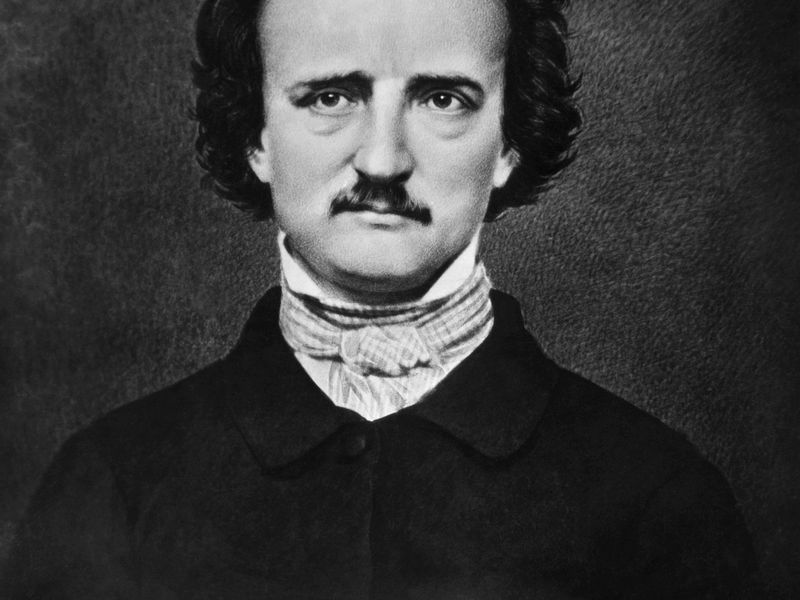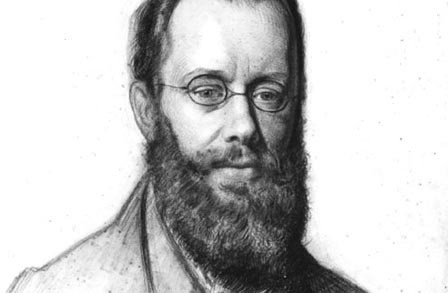INTRODUCTION TO THE POEM: The poem Israfel, was penned in an army encampment after Poe left college and was first published in the year 1831 in a collection titled Edgar. A. Poe. However, it was altered and amended to be published again in the August 1836 issue of the Southern Literary Messenger. The poem was originally written in eight stanzas of varied lengths and in an introduction to the poem, Poe explicates that he derives the legend of Israfel from the Koran of an angel who is blessed with a lute for a heart and who possesses “the sweetest voice of all God’s creatures”. In reality, although the name ‘Israfel’ is not principally mentioned in the Islamic holy texts, there is a constant reference to an unnamed trumpet-angel and it is probable that this figure is what inspired Poe to create the poem Israfel.
Central Idea of Israfel by Edgar Allan Poe
As mentioned earlier there could have been quite a few number of texts to draw inspiration for this poem and hence it is possible, that Poe had extracted this idea from George Sales Preliminary Discourse on the Koran. However, the name of the angel is not revealed in the holy texts and Israfel has simply been identified as the trumpet-angel suggested in the Koran. The central intention of the poem is to visualise the competition of a human voice to that of a supernatural entity and to declare the challenge to see who fares better. It is the pronouncement of an imposing mortal who believes his songs of woe and joy has more relevance in terms of passion than that of the lyre-hearted angel gifted with divine powers but no real experience of life. Basically, it reflects Poe’s own principles of poetry, which suggests that a truly inspired song has to have mortal relevance and rendition and it is not enough for a poem to just be beautiful in form and lyric lacking in any actual impact.
Themes of Israfel by Edgar Allan Poe
The poem Israfel has a very fundamental theme of Romanticism. According to the Romantics, art should always be an expression of nature and humanity and should appeal to the human heart in contrast to classical elegance. There is a strong suggestion of the individual in the poem Israfel, where the widely accepted traditional notion of music has been questioned by the refreshing realism of the poet. Poe has been successful in expressing many of these Romantic characteristics of artistic freedom in this poem. Also the symbols and motifs of the celestial bodies present the rich imagination of the poet, and creative imagination is crucial to the Romantic theme.
Themes of religion and spirituality can also be conceived from this poem. Poe depicts his own version of Heaven through this poem which is a balance between liveliness and composure of spiritual thoughts. It is important to note how Poe portrays his God solely as the emotion of Love and thereby does not distraught this image with the complications of general religion. His view of heaven is pure and free of human intricacies and the poet is also a little envious of the angel’s residence in such a stimulating environment where he is free to explore his music to his heart’s content.
The theme of ambition surfaces in the latter half of the poem and creates a whole new dimension. In a certain elusive manner, the talent of the angel irks the poet and he attempts to justify his competence with him. Not only, does the speaker in the poem wish to be as prosperous and appreciated as Israfel, he dreams to surpass him in musical excellence, if only he could exchange places with the angel.
Tone of Israfel by Edgar Allan Poe:
The poem Israfel is a triumphant positive statement of the powerful poetic decree, but along with this joyous celebration there lurks a tone of discontentment and rueful longing for the unattainable. The poem naturally assumes a spirited resonance but it goes through varied emotions and it is not a light-hearted poem in its entirety. In certain instances the tone of the poem is melodious and appreciative – “None sing so wildly well / As the angel Israfel”. But there are also occasions of doubt and internal conflict where he attempts to reason with the cause of this divine phenomena by stating – “That Israfeli’s fire / Is owing to that lyre”. At times the tone of the poem drastically shifts to that of remorse and longing – “If I could dwell / Where Israfel / Hath dwelt”. At last the poem towards the end gains the tone of confidence and strong will – “He might not sing so wildly well / A mortal melody / While a bolder note than this might swell / From my lyre within the sky”. Therefore, the tone of the poem attempts to maintain no uniformity because its serves as an outpouring of successive emotions.
Conclusion of the poem Israfel
The ideas which Poe put into Israfel require a special kind of treatment. The abstract principles of poetry that meant so much to him and had for him an almost personal existence would be presented only in the form of a genuine myth narrated in his own original imagination. Supernaturalism in Poe is usually a presentation of psychological horror or that of the occult. He moves out of his staple genre, and here it serves to exhibit the effects of the supernatural upon human conduct in a benevolent manner. The angel Israfel, in a way, inspires the poet to reach beyond his limited means and urges him on to create immortal art. This poem proves to us that reality of success does not merely consist of material objects perceptible to the senses, but also in the deeper passions and experiences of the soul, the fulfilment of which can only be contrived through artistic creativity.
Some online learning platforms provide certifications, while others are designed to simply grow your skills in your personal and professional life. Including Masterclass and Coursera, here are our recommendations for the best online learning platforms you can sign up for today.
The 7 Best Online Learning Platforms of 2022
- Best Overall: Coursera
- Best for Niche Topics: Udemy
- Best for Creative Fields: Skillshare
- Best for Celebrity Lessons: MasterClass
- Best for STEM: EdX
- Best for Career Building: Udacity
- Best for Data Learning: Pluralsight
















